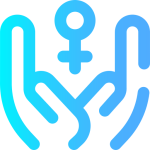Then why do you keep bringing it up???We'd already agreed on that point.A human being is not a cow or a chicken.Agreed. I'm just trying to point out the hypocrisy of caring so much about a human fetus simply because it's human and so little about the welfare of other species.A human being is not a cow. It is not a chicken. It is not livestock.
Why do I keep bringing -what- up? I don't know what you think I'm bringing up, but as can be seen in the nested quotes above, I already agreed with you that humans beings aren't cows, chickens or livestock back in post #166. The point you keep on ignoring is that I'm making a -comparison- between the intelligence of human fetuses and livestock animals like cows and chickens. Put simply, there is strong evidence that these animals, once past the fetal stage, are highly intelligent and yet most people are not vegetarians. I think it's people generally consider that life below a certain level of intelligence is simply worth less than life with more intelligence. Now, I also think there is too much speciesm, which is this notion that just because it's a -human- fetus, it must be accorded special status, but even there, the trump card is that compared to the pregnant female whose body a fetus is house, the level of intelligence of the pregnant female is probably an order of magnitute or more compared to her fetus. It's all about priorities.



